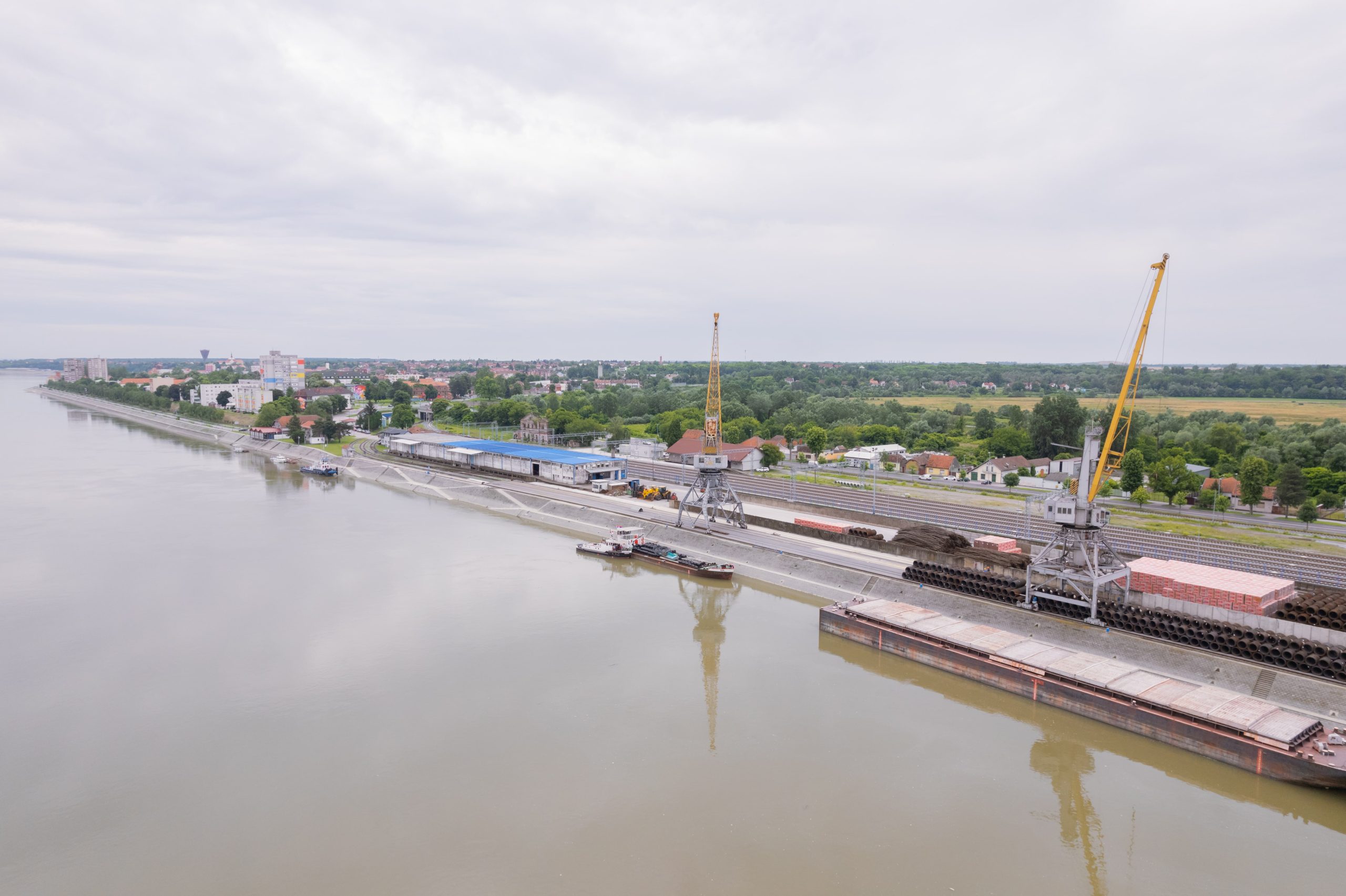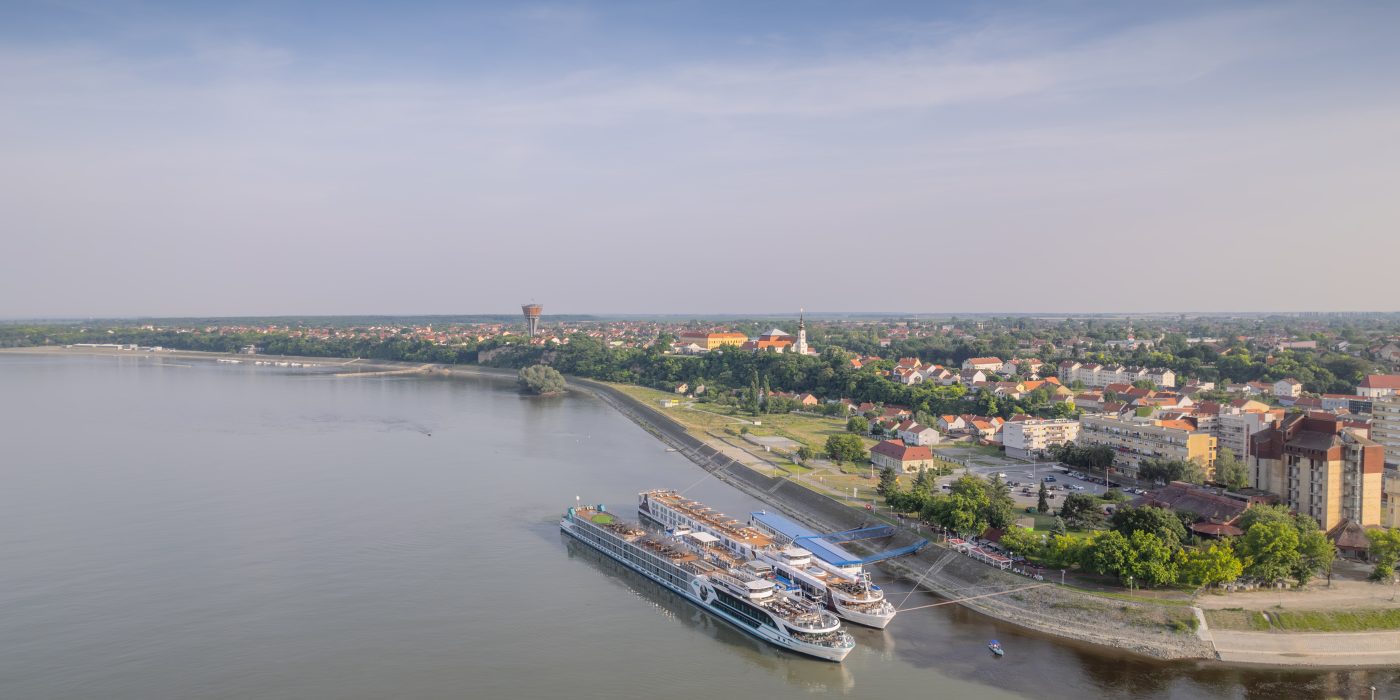The Port of Vukovar, located where the Vuka meets the Danube in eastern Croatia, is the country’s largest inland port and a crucial waterway transport hub. Positioned on the Danube’s right bank, it remains navigable year-round, even during low water levels, aiding trade within Croatia and northern Bosnia and Herzegovina.
The port is primarily dedicated to the transhipment and storage of general and bulk cargo, supported by an 850-meter-long quay and a 45-meter-wide operational area. Operating under a landlord port model, the Port of Vukovar also retains direct operational responsibility for its passenger terminals, serving ferries and cruise vessels.
The Port of Vukovar has actively participated in the GRIP initiative and successfully completed all components of the GRIP-ESMS.
As a landlord port, involvement in GRIP provided Vukovar with valuable insights into port-wide emissions and demonstrated how the GRIP-ESMS can be utilised to guide future investment priorities and funding opportunities. We spoke with Vjekoslav, the head of the department at the Port of Vukovar, who shared insights regarding their greening efforts and processes
1. What are the environmental and sustainability objectives for the Port of Vukovar?
Reduction of greenhouse gases through the implementation of new technologies with a focus on electrification and the installation of photovoltaic solar panels. Replacing conventional sources of energy (fossil fuels) with renewable ones reduces overall business costs. Acquisition of state-of-the-art technology in ports and terminals with a focus on transhipment equipment.
2. What major challenges do you need to overcome for the realisation of your environmental and sustainability objectives?
High expenditures on the transformation and installation of new equipment. Resolving property and legal issues in terms of ownership.
3. What should a future-proof environmental or quality management system include to help the Port of Vukovar boost energy efficiency and support sustainable development?
Comprehensive analysis of the current situation with a focus on electricity and other fuel consumption, with clear guidelines and improvement activities to optimise the energy costs in everyday business. Support on the national level with a joint approach for the development of inland navigation, which will take into consideration national strategic documents, as well as EU Directives, which regulate and promote inland navigation.
The Green Inland Ports study team would like to thank the Port of Vukovar for their great cooperation and for joining as a pilot port!

